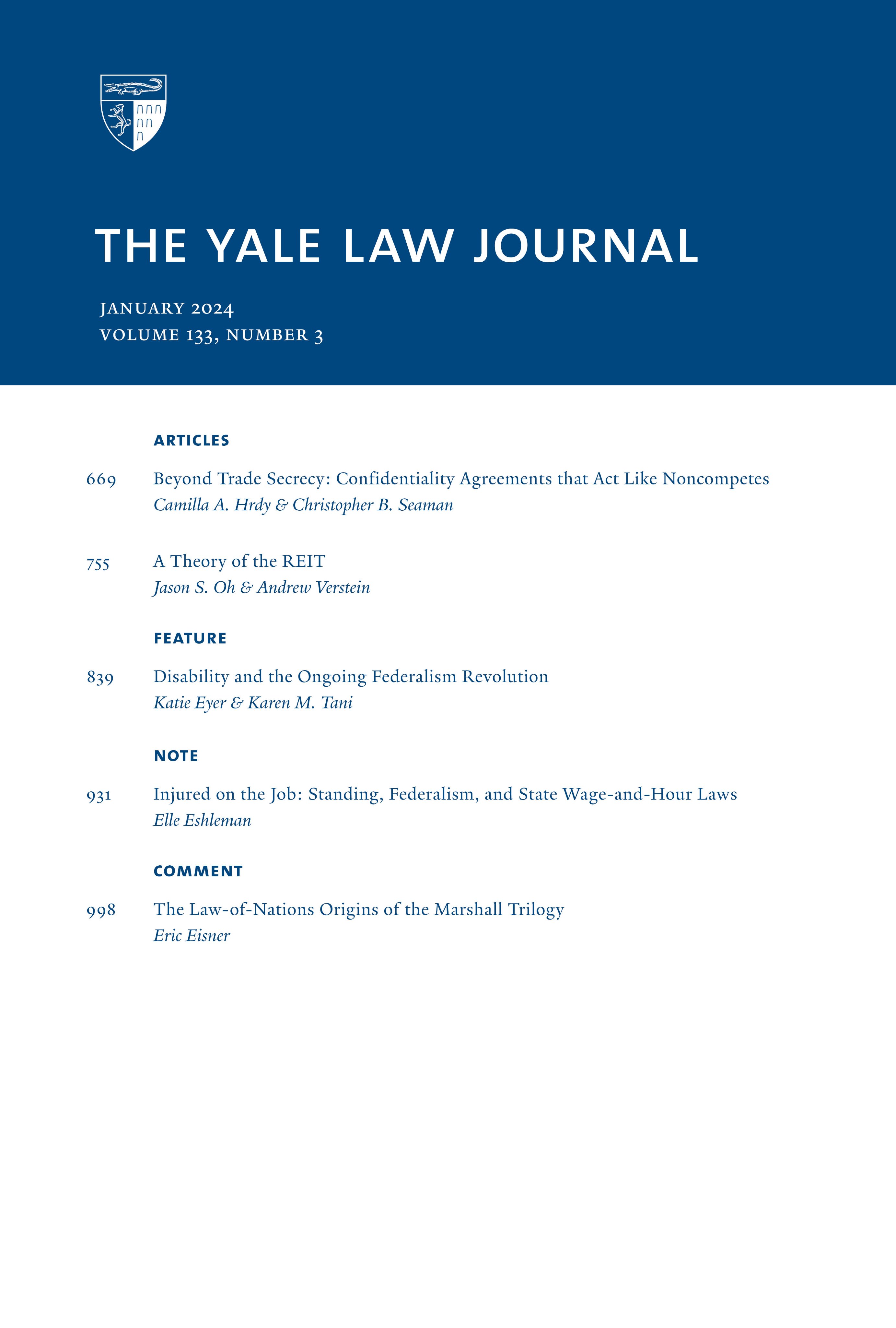Administrative Severability Clauses
IF 5.2
1区 社会学
Q1 LAW
引用次数: 0
Abstract
Severability clauses can help administrative agencies minimize the damage caused by judicial review and can make the regulatory environment more efficient, participatory, and predictable. Yet agencies rarely include these clauses in their rules because courts tend to treat administrative rules with severability clauses the same as those without. Courts have treated administrative severability clauses in this way largely because they have mistakenly analogized them to severability clauses contained in statutes. While Congress routinely includes severability clauses in statutes that are drafted in distinct iterations, by different committees with legislative staff who often lack the time and expertise to consider the clauses’ potential ramifications, administrative agencies use these clauses with more care. This Article proposes a Chevron-style deference framework for administrative severability clauses. Under this framework, after a reviewing court has set aside a challenged regulatory provision, the court should defer to a promulgating agency’s opinion on severability as expressed through a severability clause, unless the remainder of the rule itself would suffer from legal defects resulting from the court’s invalidation of the challenged provisions. This framework would better promote the overarching goals of administrative law than do current judicial doctrine and agency practice.行政可分割条款
可分割性条款可以帮助行政机关最大限度地减少司法审查造成的损害,使监管环境更加高效、参与性和可预测性。然而,行政机关很少在其规章中包括这些条款,因为法院倾向于将带有可分割条款的行政规章与没有可分割条款的行政规章等同对待。法院以这种方式处理行政可分割性条款,主要是因为它们错误地将其类比为成文法中的可分割性条款。虽然国会经常在由不同委员会的立法人员反复起草的法规中包括可分割条款,这些委员会的立法人员往往缺乏时间和专业知识来考虑条款的潜在后果,但行政机构在使用这些条款时更为谨慎。本文提出了一个行政可分割性条款的雪佛龙式遵从框架。在这一框架下,在审查法院搁置了一项受到质疑的监管条款之后,法院应遵从颁布机构通过可分割条款所表达的关于可分割性的意见,除非该规则本身的其余部分将因法院宣布被质疑的条款无效而遭受法律缺陷。这一框架将比目前的司法理论和机构实践更好地促进行政法的总体目标。
本文章由计算机程序翻译,如有差异,请以英文原文为准。
求助全文
约1分钟内获得全文
求助全文
来源期刊

Yale Law Journal
LAW-
CiteScore
4.50
自引率
6.20%
发文量
0
期刊介绍:
The Yale Law Journal Online is the online companion to The Yale Law Journal. It replaces The Pocket Part, which was the first such companion to be published by a leading law review. YLJ Online will continue The Pocket Part"s mission of augmenting the scholarship printed in The Yale Law Journal by providing original Essays, legal commentaries, responses to articles printed in the Journal, podcast and iTunes University recordings of various pieces, and other works by both established and emerging academics and practitioners.
 求助内容:
求助内容: 应助结果提醒方式:
应助结果提醒方式:


